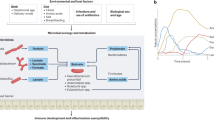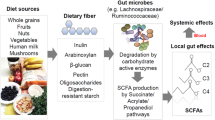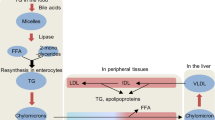Abstract
Dietary nucleotides have been reportedly beneficial, especially for infants, since they positively influence lipid metabolism, immunity, and tissue growth, development and repair. Rapidly proliferating tissues, such as the immune system or the intestine are not able to fulfil the needs of cell nucleotides exclusively by de novo synthesis and they preferentially utilize the salvage pathway recovering nucleosides and nucleobases from blood and diet. In the present review we describe the modulatory effect of dietary nucleotides on the immune system together with some of their effects on gut-associated lymphoid tissue. Dietary nucleotides influence lymphocyte maturation, activation and proliferation. Likewise, they affect the lymphocyte subset populations in both the small intestine and blood. Moreover, they are involved in enhancing macrophage phagocytosis and delayed hypersensitivity as well as allograft and tumour responses. In addition, they contribute to the immunoglobulin response in early life, having a positive effect on infection. In fact the incidence and duration of acute diarrhoea is lower in infants fed supplemented-nucleotide formulas. The molecular mechanisms by which dietary nucleotides modulate the immune system are practically unknown. Dietary nucleotides have been shown to enhance the production and the genetic expression of IL-6 and IL-8 by foetal small intestinal explants. Dietary nucleotides may influence protein biosynthesis as well as signal membrane transduction mediated by the interaction of exogenous nucleosides and their receptors may also contribute to modulate the expression of a number of genes, some of which can directly affect the levels of intestinal cytokines.
This is a preview of subscription content, access via your institution
Access options
Subscribe to this journal
Receive 12 print issues and online access
$259.00 per year
only $21.58 per issue
Buy this article
- Purchase on Springer Link
- Instant access to full article PDF
Prices may be subject to local taxes which are calculated during checkout
Similar content being viewed by others
Author information
Authors and Affiliations
Corresponding author
Rights and permissions
About this article
Cite this article
Gil, A. Modulation of the immune response mediated by dietary nucleotides. Eur J Clin Nutr 56 (Suppl 3), S1–S4 (2002). https://doi.org/10.1038/sj.ejcn.1601475
Published:
Issue Date:
DOI: https://doi.org/10.1038/sj.ejcn.1601475
Keywords
This article is cited by
-
Plasma acetylcholine and nicotinic acid are correlated with focused preference for photographed females in depressed males: an economic game study
Scientific Reports (2021)
-
Prevention of disease progression in Leishmania infantum-infected dogs with dietary nucleotides and active hexose correlated compound
Parasites & Vectors (2018)
-
Effects of nucleotides on growth performance, immune response, disease resistance and intestinal morphology in shrimp Litopenaeus vannamei fed with a low fish meal diet
Aquaculture International (2016)
-
Response to an Escherichia coli K88 oral challenge and productivity of weanling pigs receiving a dietary nucleotides supplement
Journal of Animal Science and Biotechnology (2015)
-
Dietary nucleotide improves markers of immune response to strenuous exercise under a cold environment
Journal of the International Society of Sports Nutrition (2013)



